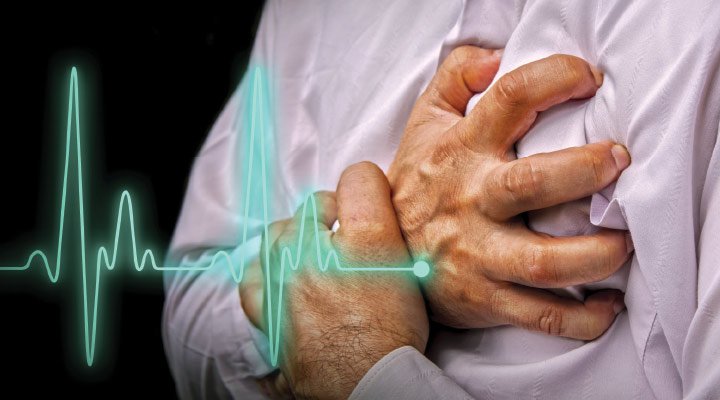
Heart disease describes a range of conditions that affect your heart. Diseases under the heart disease umbrella include blood vessel diseases, such as coronary artery disease; heart rhythm problems (arrhythmias); and heart defects you're born with (congenital heart defects).
The term "heart disease" is often used interchangeably with the term "cardiovascular disease." Cardiovascular disease generally refers to conditions that involve narrowed or blocked blood vessels that can lead to a heart attack, chest pain (angina) or stroke. Other heart conditions, such as those that affect your heart's muscle, valves or rhythm, also are considered forms of heart disease.
Symptoms of heart disease in your blood vessels (atherosclerotic disease). Cardiovascular disease symptoms may be different for men and women. For instance, men are more likely to have chest pain; women are more likely to have other symptoms along with chest discomfort, such as shortness of breath, nausea and extreme fatigue.
Symptoms can include:
Heart disease symptoms caused by abnormal heartbeats (heart arrhythmias)
A heart arrhythmia is an abnormal heartbeat. Your heart may beat too quickly, too slowly or irregularly. Heart arrhythmia symptoms can include:
Serious congenital heart defects — defects you're born with — usually become evident soon after birth. Heart defect symptoms in children could include:
Less serious congenital heart defects are often not diagnosed until later in childhood or during adulthood. Signs and symptoms of congenital heart defects that usually aren't immediately life-threatening include:
In early stages of cardiomyopathy, you may have no symptoms. As the condition worsens, symptoms may include:
Heart infection symptoms can include:
Depending on which valve isn't working properly, valvular heart disease symptoms generally include:
When to see a doctor:
Heart disease is easier to treat when detected early, so talk to your doctor about your concerns regarding your heart health. If you're concerned about developing heart disease, talk to your doctor about steps you can take to reduce your heart disease risk. This is especially important if you have a family history of heart disease.
If you think you may have heart disease, based on new signs or symptoms you're having, make an appointment to see your doctor
Copyright © 2018 Vaibhav Clinic. All Rights Reserved.
Powered By Zetta Spark Technologies